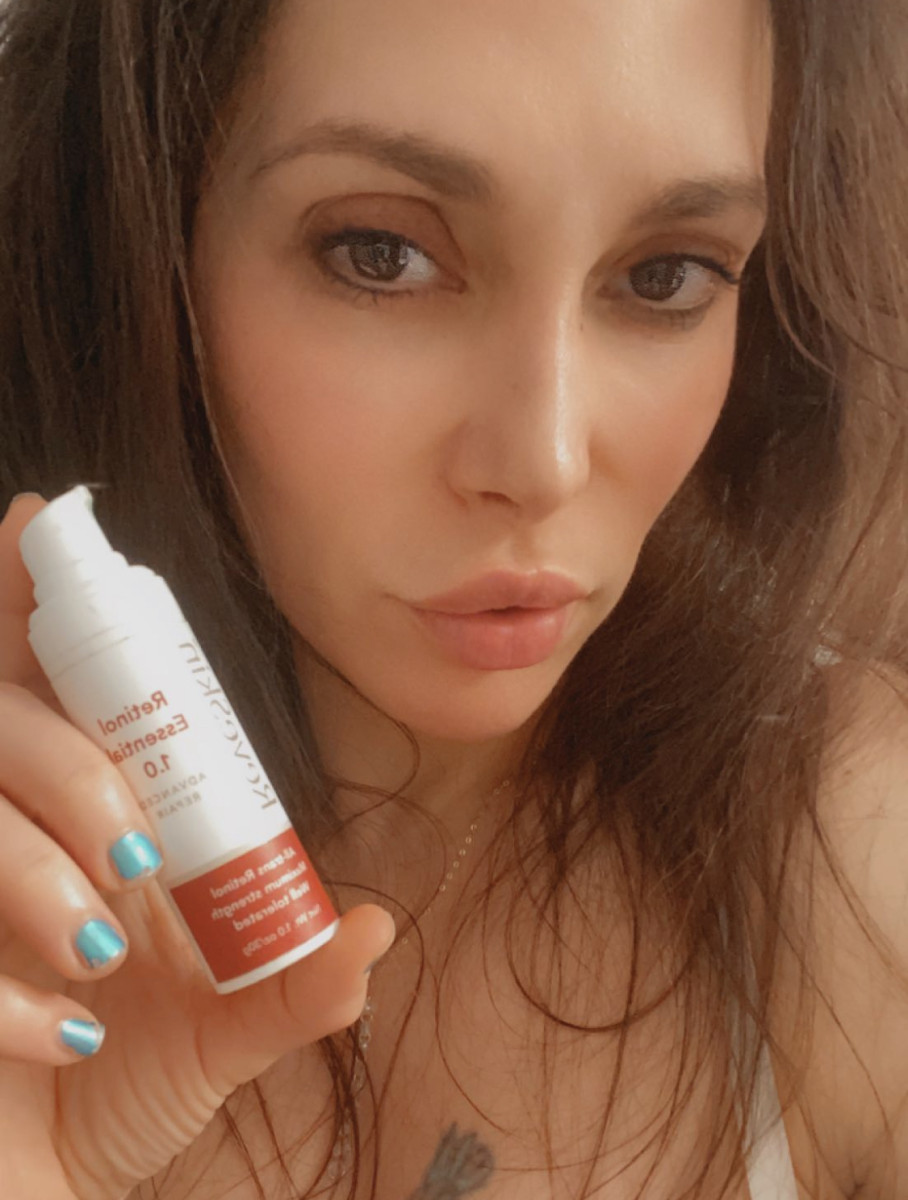In the quest for youthful, radiant skin, understanding the right ingredients is key. The skincare market is flooded with products promising anti-aging miracles, but what really works? Let’s delve into the science-backed ingredients that truly make a difference.
Retinol – The Timeless Warrior Against Aging:
Retinol, a form of Vitamin A, is a powerhouse in reversing the signs of aging
Retinol is an important skincare ingredient for several reasons:
1. Collagen Production: Retinol stimulates collagen production in the skin, which helps improve skin elasticity, firmness, and texture. Collagen is essential for maintaining youthful-looking skin and reducing the appearance of wrinkles and fine lines.
2. Cell Turnover: Retinol accelerates the skin’s natural exfoliation process, promoting the turnover of dead skin cells and revealing fresh, new skin underneath. This helps improve skin tone, reduce hyperpigmentation, and unclog pores, leading to smoother, brighter skin.
3. Acne Treatment: Retinol can help treat acne by preventing the formation of comedones (clogged pores) and reducing inflammation. It also helps fade post-acne marks and scars, resulting in clearer, more even skin.
4. Sun Damage Repair: Retinol has been shown to repair sun damage by promoting the growth of new skin cells and improving the appearance of sunspots, age spots, and uneven pigmentation caused by UV exposure.
5. Anti-aging Benefits: Retinol is one of the most effective anti-aging ingredients available, helping to reduce the signs of aging such as wrinkles, fine lines, and sagging skin. It can also improve skin texture and tone, resulting in a more youthful and radiant complexion.
Overall, incorporating retinol into your skincare routine can help address a wide range of skin concerns and promote healthier, more youthful-looking skin over time. However, it’s essential to use retinol products properly and gradually introduce them into your routine to minimize the risk of irritation or sensitivity.
what is The most significant difference between retinol and retinoic acid ?
the major difference lies in how they work within the skin:
1. Retinol: Retinol is a precursor to retinoic acid and is converted into retinoic acid once it is absorbed into the skin. This conversion process occurs gradually and requires enzymes in the skin. Retinol is available over-the-counter in skincare products and is typically less irritating than retinoic acid. It works by stimulating collagen production, promoting cell turnover, and improving skin texture and tone. While retinol is effective, it may take longer to see results compared to retinoic acid.
2. Retinoic Acid (Tretinoin): Retinoic acid is the active form of vitamin A and does not require conversion within the skin. It is available by prescription and is more potent and effective than retinol. Retinoic acid works by binding to specific receptors in the skin cells, where it regulates gene expression and promotes cell turnover. It is highly effective at treating acne, reducing the appearance of wrinkles and fine lines, and improving overall skin texture and tone. However, retinoic acid can be more irritating and may cause redness, peeling, and sensitivity, especially when first starting treatment.
In summary, retinol and retinoic acid both offer anti-aging and skin-renewing benefits, but retinoic acid is more potent and requires a prescription, while retinol is available over-the-counter and is generally less irritating. The choice between the two depends on individual skin concerns, sensitivity, and the desired level of efficacy.
Vitamin C – The Brightening Hero:
Vitamin C, an essential antioxidant, is revered for its ability to fight free radicals, brighten the skin, and reduce signs of aging like fine lines and dark spots. It’s a key ingredient in serums and creams for its protective and rejuvenating properties.
Vitamin C offers numerous benefits when used in skincare products:
1. Antioxidant Protection: Vitamin C helps neutralize free radicals caused by environmental factors like pollution and UV radiation, protecting the skin from oxidative stress and damage. This can help prevent premature aging and reduce the risk of skin cancer.
2. Collagen Production: Vitamin C stimulates collagen synthesis in the skin, promoting firmness, elasticity, and overall skin health. Collagen is essential for maintaining a youthful complexion and reducing the appearance of fine lines and wrinkles.
3. Brightening: Vitamin C has skin-brightening properties that can help fade dark spots, hyperpigmentation, and uneven skin tone. It inhibits melanin production, resulting in a more even and radiant complexion.
4. Sun Protection: While not a substitute for sunscreen, vitamin C can enhance the effectiveness of sun protection when used in conjunction with sunscreen. It helps repair and protect the skin from UV damage, minimizing the risk of sunburn and sun-induced aging.
5. Wound Healing: Vitamin C promotes wound healing and skin repair by supporting the skin’s natural regeneration process. It can help reduce inflammation, redness, and scarring associated with acne, injuries, or surgical procedures.
Niacinamide – The Multifaceted Vitamin B3:
Niacinamide, or Vitamin B3, is celebrated for its ability to preserve skin elasticity, improve barrier function, and hydrate the skin. It also addresses redness and hyperpigmentation, making it a sought-after ingredient in anti-aging skincare.
Hyaluronic Acid – The Hydration Magnet:
Hyaluronic Acid acts like a moisture magnet, plumping the skin and reducing the appearance of fine lines. It offers instant hydration, leaving the skin looking and feeling rejuvenated.
Ferulic Acid – The Understated Protector:
Ferulic Acid enhances the stability and effectiveness of other antioxidants like vitamins C and E, providing added defense against aging and environmental stressors.
Peptides and Vitamin E – The Skin Refiners:
Peptides, short chains of amino acids, are fundamental in supporting skin health. They improve skin elasticity, reduce wrinkles, and enhance texture. Vitamin E, often found in eye creams with peptides, helps to brighten and firm the under-eye area.
Copper – The Regenerative Element:
Copper in skincare, particularly in the form of copper peptides, supports skin regeneration and healing. These peptides stimulate collagen and elastin production and have antioxidant and anti-inflammatory properties, contributing to overall skin health and youthfulness.
Incorporating these ingredients into your skincare routine can offer significant anti-aging benefits. However, remember that moderation is key. It’s also important to give these products time to work and be patient with the results. For a comprehensive skincare regimen, combine these ingredients with a healthy lifestyle and regular skin care practices.



